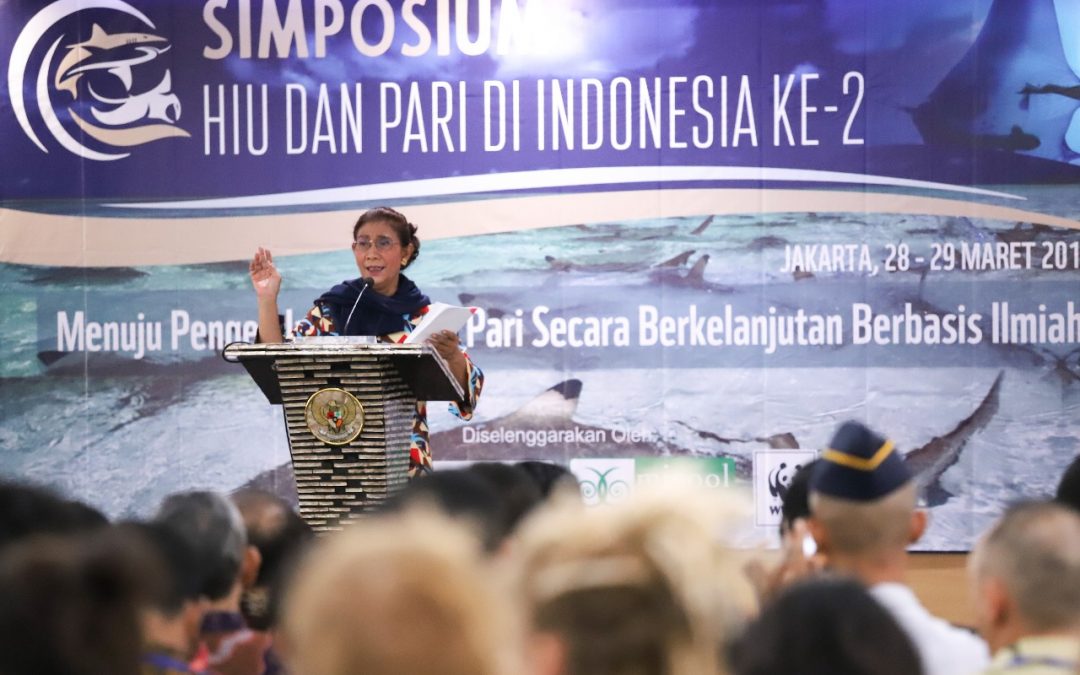Momentum is growing for shark and ray conservation in Indonesia. Last week the MantaWatch team attended two important national workshops on shark and ray conservation at the Ministry of Marine Affairs and Fisheries in Jakarta.
Mobulidae Habitat Model Workshop
The Mobulidae Habitat Model Workshop on March 27, 2018 was hosted by the Indonesia Fisheries Research Centre (PUSRIKAN) in collaboration with Conservation International, Misool Foundation, and World Wildlife Fund. This workshop aimed to begin the process of identifying and protecting key mobulid habitats in Indonesia.
Several organisations presented highlights of their work, and worked together to compile and validate data about mobulid ray distributions and threats in Indonesia. Participants developed a national map of mobulid research and monitoring activities throughout Indonesia. This useful exercise helped to identify gaps exist in current knowledge and priorities for future research.
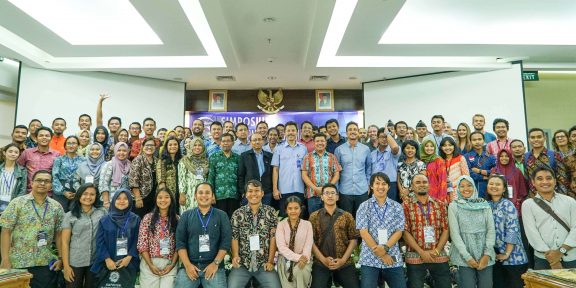
Participants at Indonesia’s 2nd National Shark and Ray Symposium
Accurate and timely data are an essential requirement for good conservation strategies. A great deal of research has already been completed in Indonesia to describe species distributions and their ecology, including satellite tagging, genetic studies and habitat modelling. It is now important to make this information available to decision-makers to help with developing conservation rules and regulations.
It is also important for greater research efforts into developing solutions that address the threats facing mobuild populations. Our Sustainable Fisheries team presented preliminary findings from their work evaluating whether light can reduce mobula ray bycatch in small-scale fisheries.
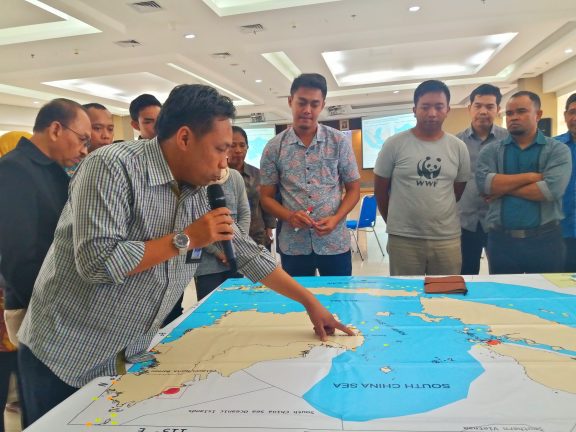
Working together to identify shark and ray research gaps and priorities
The 2nd National Shark and Ray Symposium
The 2nd Indonesian Shark and Ray Symposium took place at the Ministry of Marine Affairs and Fisheries from March 28 to 29, 2018. This event was attended by all the organisations and researchers working on shark and ray issues in Indonesia, and even some from neighbouring countries such as Malaysia.
The symposium was organized around three topics: (1) Biology, Population and Ecology; (2) Social, Economic and Institutional; and (3) Management and Conservation.
Minister of Marine Affairs and Fisheries Susi Pujiastuti opened the symposium, and welcomed its contribution to Indonesia’s National Plan of Action for the Conservation and Management of Sharks and Rays (NPOA-Sharks). She emphasised the importance of developing sustainable fisheries, and of conserving shark and ray populations that play an important role in maintaining the equilibrium of ecosystems and are an indicator of ecosystem health.
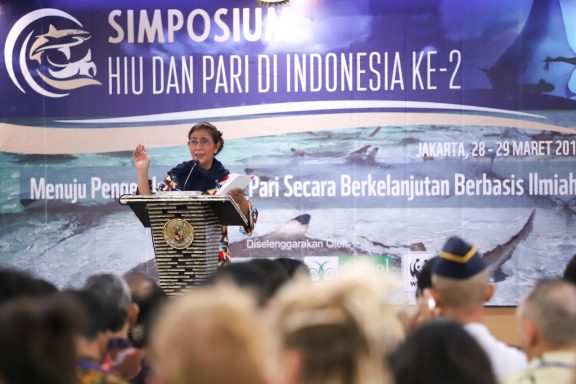
Minister Susi Pudjiastuti emphasises the economic and biodiversity values of sharks and rays
Many interesting issues were highlighted during the symposium, including the goals of Indonesia’s new NPOA-Sharks, recent conservation and management measures established by Regional Fishery Management Organisations (RFMOs), the role of marine protected areas and integrated coastal zone management in conserving shark and ray populations, and the socio-economic aspects of shark and ray utilisation in Indonesia, including their important role as marine tourism flagship species.
MantaWatch gave two presentations at this workshop. Our Sustainable Fisheries team presented more highlights from their bycatch reduction work with Muncar fishing communities. Our Sustainable Tourism team shared information about our work evaluating the accuracy and precision of marine wildlife monitoring by citizen scientists.
During the Symposium participants identified 19 priority actions for conserving sharks and rays in Indonesia. This includes strengthening collaboration between stakeholders to support NPOA-Sharks, and implementing international agreements and best practices for the sustainable management and conservation of sharks and rays such as those outlined in CITES, RFMO Conservation and Management Measures, and the IUCN Red List.
Two of the most important actions are to increase the coverage of research and monitoring efforts in Indonesia to address information gaps, and the need for multidisciplinary studies to evaluate the implementation and effectiveness of management strategies.
MantaWatch Alumni Unite for Shark and Ray Conservation
With an important national event such as this, of course many MantaWatch alumni were attending. This was a great opportunity to meet or catch up with alumni from previous years, and to learn more about the conservation work they are now doing in many organizations.
As I begin my new role with MantaWatch’s Sustainable Tourism team I’m looking forward to making my contribution to these important shark and ray conservation priorities.
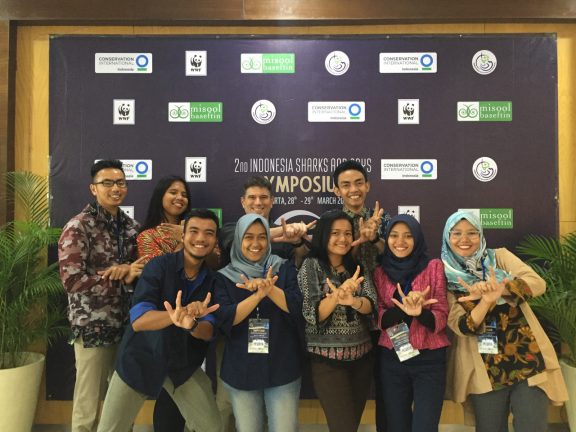
MantaWatch Alumni reunited at Indonesia’s 2nd National Shark and Ray Symposium. Back: M. Ichsan (2012), Ranny Yueni (2013), Andrew Harvey, Miko Sujatmiko (2016). Front: Rafid Shidqi (2016), Willy Angraini (2017), Retno Ningrum (2016), Amelia Kumala (2016), Vidlia Rosady (2013)

